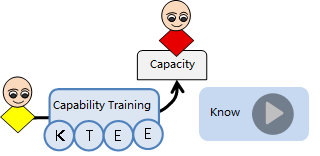|
|
| Successful Case
|
| Continental Automotive Electronics |
| Bosch Automotive Electronics |
| Schaeffler electric drive |
| Joyson Automotive Electronics |
| Huawei Technical Center |
| BMW Automotive Research and Development Center |
| Geely Auto Research Institute |
| Byd Automotive Research Institute |
| |
|
|
|
|
|
|
| Courses > Modeling |
|
 |
|
Model-driven development |
Views 
|
|
 |
|
| Zu Tao |
| Founded uml.org.cn in 2001, 2005 IBM Rational User Group Best Speaker |
| |
|
|
| Time Location: Beijing,Shenzhen and Shanghai open classes Based on registration |
| Course Cost: 1000 $/Person
|
|
|
|
| Internal Training: You can customize internal training according to the needs of the enterprise. |
|
 |
Authentication Method:
Understand the competency model before training.
Ability evaluation after training:
Online Examination
Ability Analysis, give learning suggestions
The qualified person shall be issued a certificate as proof of vocational skill qualification
|
 |
|
|
| Model-driven development can effectively improve development efficiency, and the course will look at modeling from the development perspective, how to organize the requirements model, derive the design model, how to generate code according to the design model, how to synchronize the code with the model, how to reverse the model according to the code, and reconstruct the design. |
|
| |
| Training Goal |
Understand the relationship between model and code, understand the environment and tools required for model-driven development, and understand the relationship between code and model through reverse engineering
- Model the code you already have
- Refactor existing designs
Master forward model-driven development
- Requirements modeling
- Design modeling
- Transition from design to code
- Development and refactoring
This course will combine a complete real-world project case with a complete real-world project case, from requirements analysis to design, and explain how to practice model-driven development in turn. |
| Training TargetпЉЪ Software Development Engineers, Software Design Engineers, especially for Agile team developers |
| Student Foundation: have certain experience in programming, analysis and design. |
| Teaching Method:
Customized Course + Case Explanation + Group Discussion, 60% Case Explanation, 40% practice exercise |
| Training Content: 2 Days
|
| Overview of Model-Driven Development |
What is Model-Driven Development Principles of
Model-Driven Development Roadmap of
Model-Driven Development Current Status, Opportunities and Challenges of
Model-Driven Development Examples of
Model-Driven Development |
| Overview of UML modeling tools |
Common UML Modeling Tools
Key Capabilities
of UML Modeling Tools UML Modeling, Model Conversion
Teamwork, Forward and Reverse Engineering
Model Asset Library, Web Publishing, Document Generation Recommend UML tools
based on customer characteristics |
| An overview of the relationship between the model and the code |
Correspondence between various forms of code and models:
Compilation Unit-Component Diagram
Source Code Logical Relationship - Class Diagram, Package Diagram
Object Interaction - Sequence Diagram
Code Logic - State Diagram
Code Processing Process - Activity Diagram |
| Reverse engineer and refactor existing code |
Model the code you already have
|
Code Structure Modeling
Code Process Modeling
Code Logic Modeling Component modeling corresponding to
the code |
| Use the tool to reverse the code |
The UML tool for reverse code supports
the reverse configuration of the code from the source code to the class diagram
and the synchronization of
the code with the model |
| Refactor existing designs |
Identify problems behind
the code Problem organization
Establish an ideal design
Refactoring plan
Modify existing code |
| Forward Engineering: Model-Driven Development |
| Agile Requirements Modeling |
Identifying Actors
Build a functional use case model
Describe the use case event flow
Define interface requirements |
| Agile design modeling |
Hierarchical Design & Modeling
Data Model Design & Modeling
Run-Oriented Design & Modeling
Use Case Design
- Scenography
- Structural design
Class Design (Design Patterns, Refactoring)
- Property design
- Assignment of duties
- Relationship design
|
| Transition from model to code |
Component Design & Modeling Generating Code Structure
from Models Generating Code Process
from Models Developing
on the Code Framework
Unit Testing & Continuous Integration
Maintaining code and model synchronization |
| Maintain synchronization of code and model |
Versioning of the model's code,
requirement change, modification order, synchronization
from model to code,
how to make the model and code appropriately isolated |
|
| |
|
|
|
|
|
| Consulting Objective
|
Help build model-driven analysis, design, development, testing |
| Scope Consultation |
Requirements Modeling, Architecture Modeling, Database Modeling, Code Modeling, Test Modeling.
|
| Consultation Method |
Model-driven development process training, modeling and management tool environment construction, combined with actual customer case demonstration, team practice guidance, model evaluation standards formulation, specification formulation |
| Successful Case |
Huawei Research and Development Center, Space Center of Chinese Academy of Sciences, Nanjing 14 Institute, China Mobile Research Institute and so on. |
| For more information:010-62670969пЉМ umlooo@hotmail.com
|
|
|
|
|